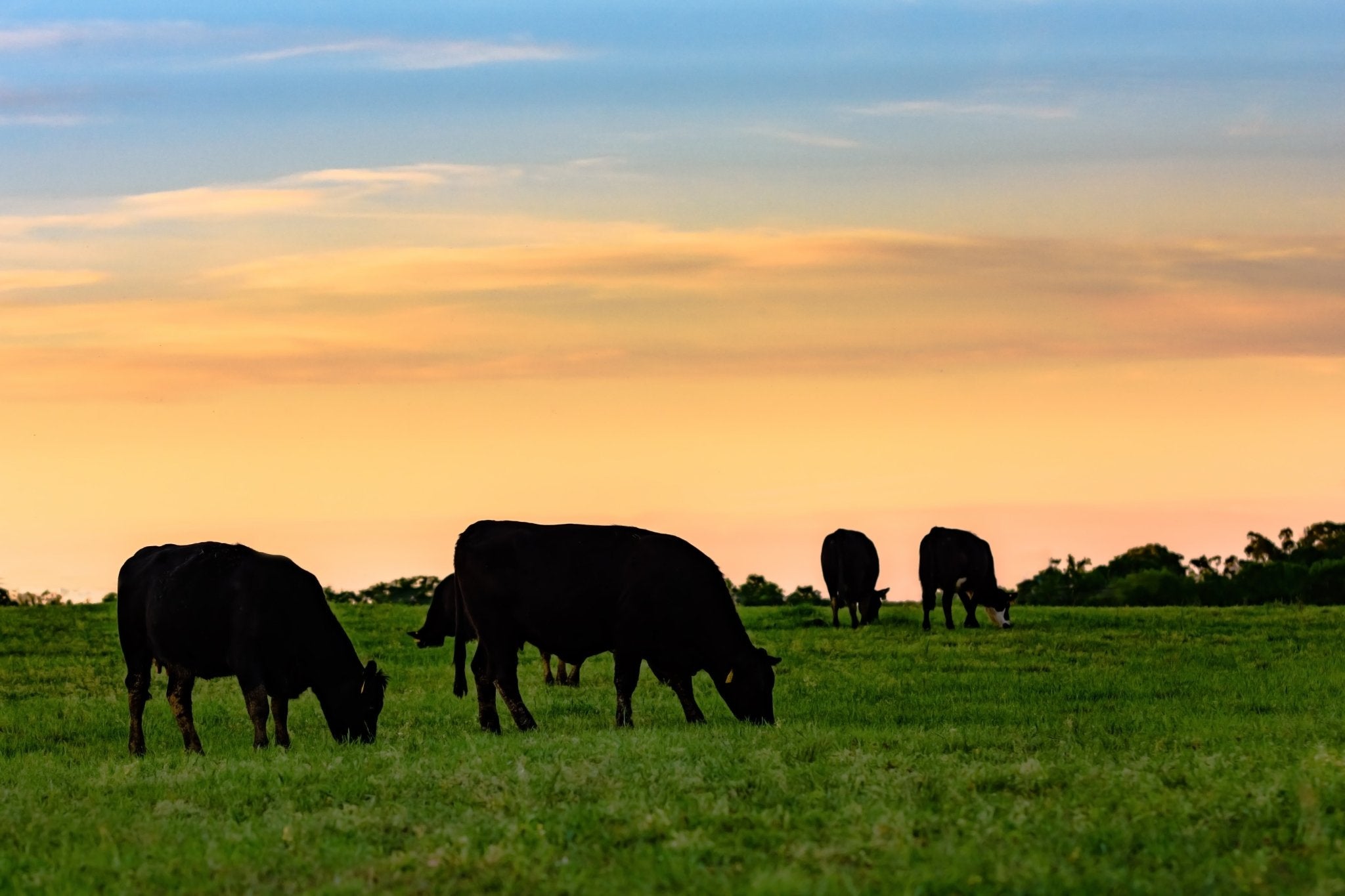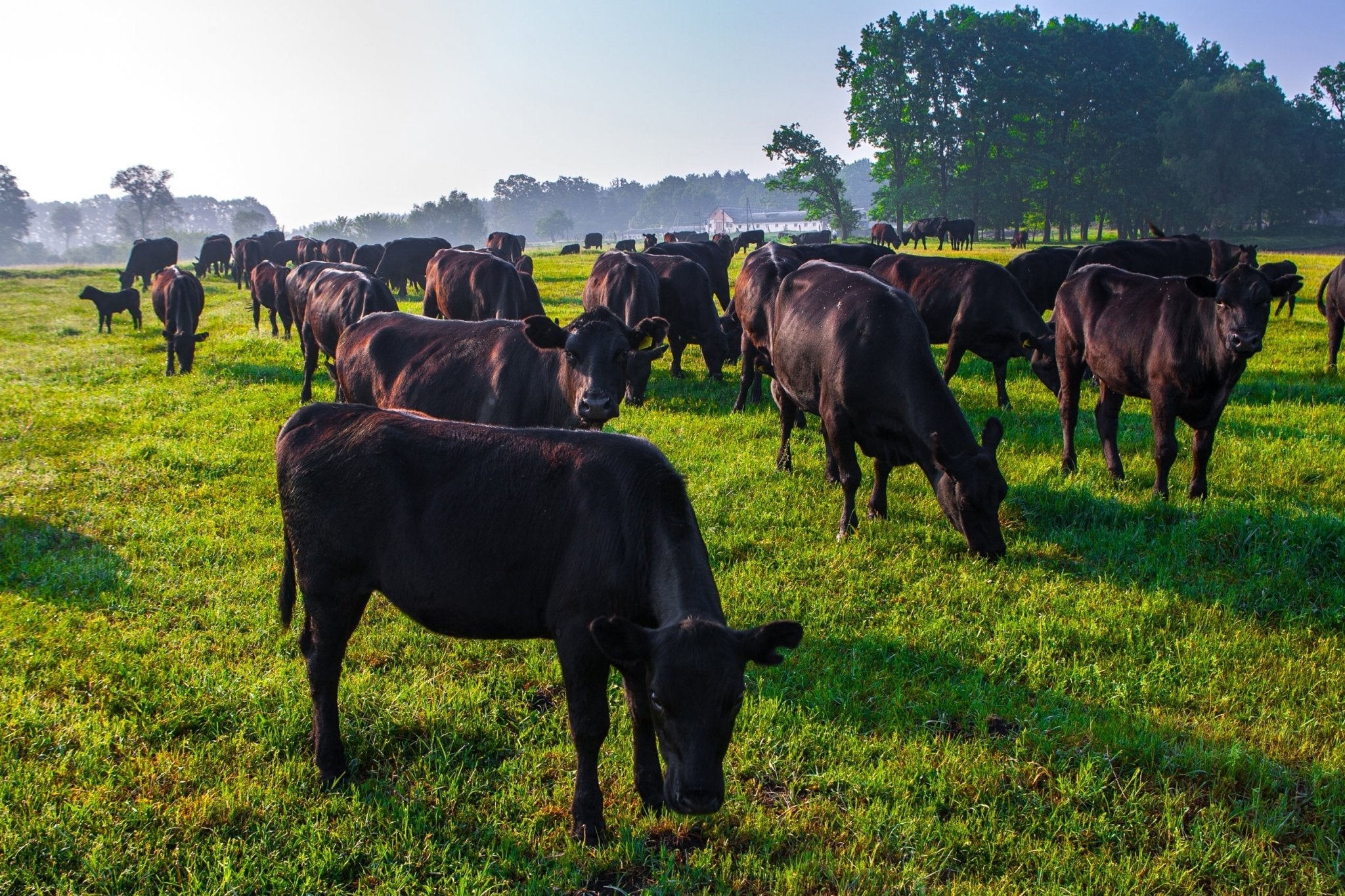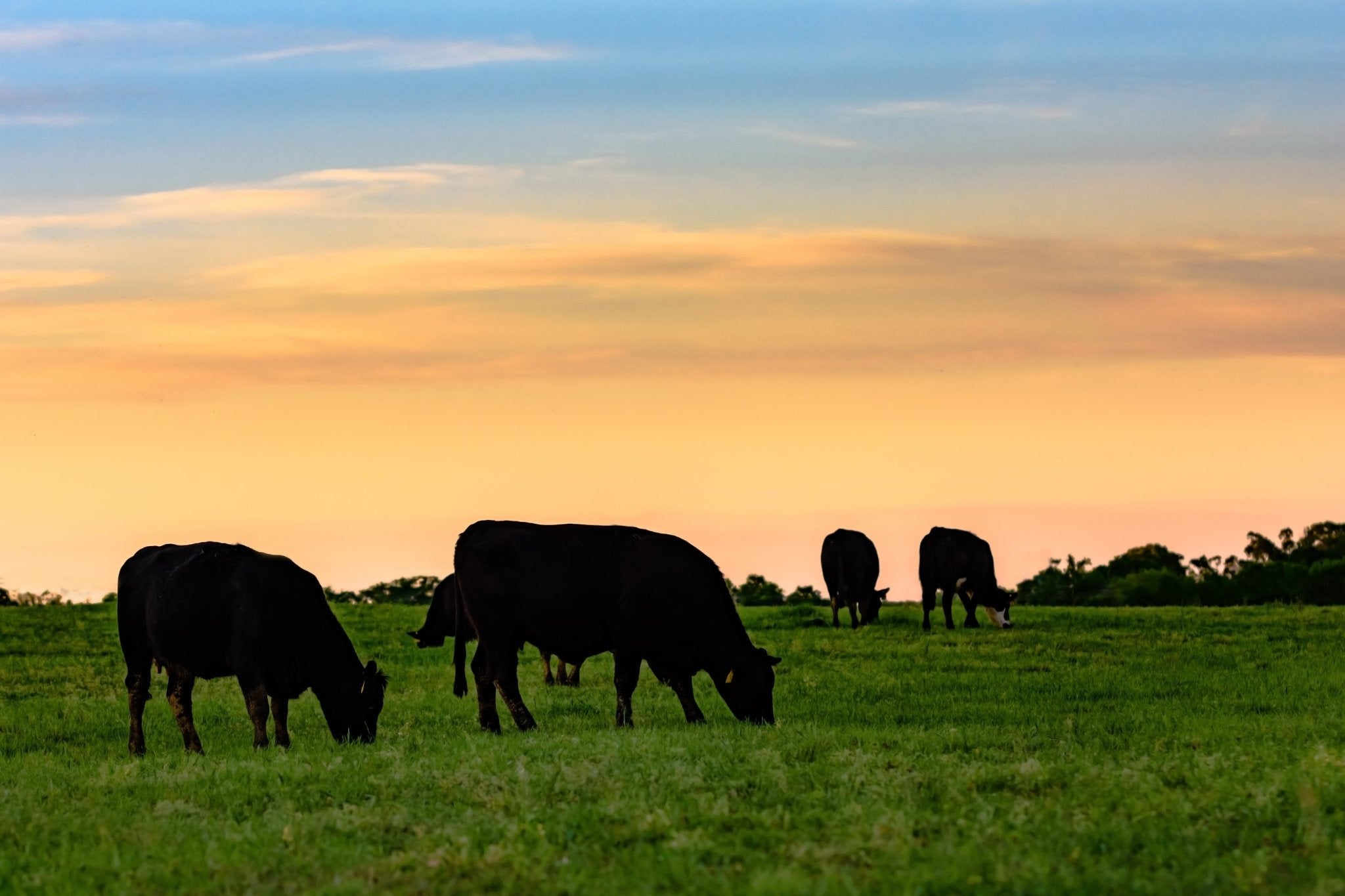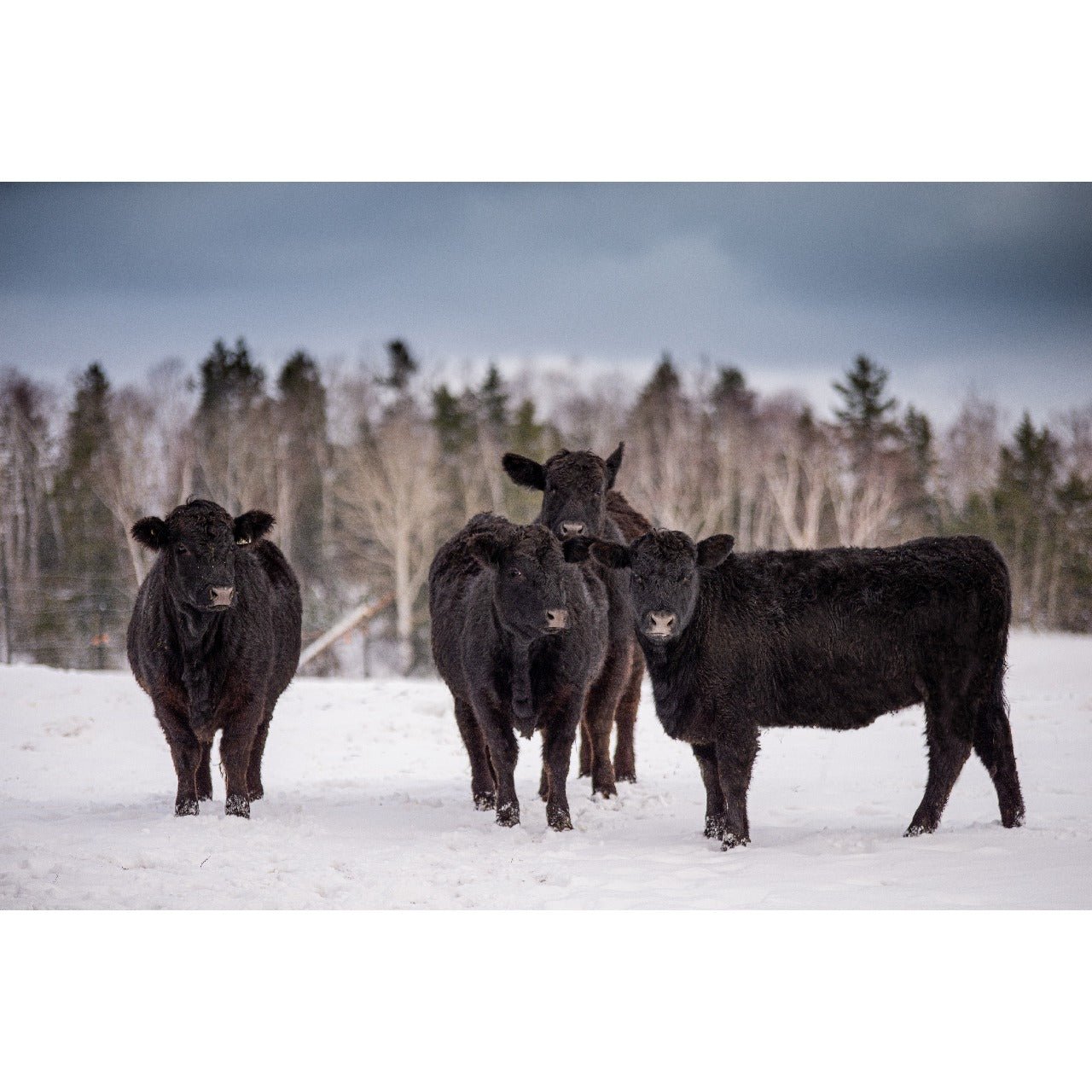Sustainable Agriculture: The Benefits of Organic Farming & Why You Should Buy Farm-To-Fork

Organic farming has been around for as long as humans have engaged in agriculture. However, it lost its appeal once the population and the demand for food grew at an alarming pace. Long gone are the days of cows grazing on the fields; today, what seems to matter to conventional farmers is the speed and quantity at which they can produce their crops. Although, in recent years, the demand for organic produce, dairy, and meat has grown exponentially, why is that?
Let's discuss why organic, sustainable farming is making a comeback as consumers consider the health benefits of organically farmed foods and make conscious choices to reduce environmental damage and improve the state of the planet we call home.
This post will discuss the benefits of organic farming for both the environment and our bodies and why farm-to-fork options are the best option for promoting sustainability.
What Is Organic Farming?
To combat the repercussions that come with the use of chemical pesticides, synthetic fertilizers, and toxins in conventional farming and to return to the roots from which farming evolved, the practice called “organic farming” began to develop.
What was once thought of as a traditional practice has turned into an exclusive and in-demand type of agriculture that grows each year as more people’s interest in where their food comes from increases.
The key aspects of organic farming involve using natural fertilizers and pest control derived from plant and animal waste. By using crop rotation, companion planting, and composting, organic farms can reduce their footprint and produce a much more sustainable and nutritious crop.
The term "organic farming" also refers to livestock, where animals are not treated with any drugs, hormones, or antibiotics. Organically farmed animals are fed non-GMO ingredients and, in exceptional cases, such as KP Beef, are also grass-fed.
What Are the Benefits of Organic Farming?
Aside from producing nutritious and hormone-free produce, lean meat, and dairy, organic farming also greatly benefits the environment. The nearly irreversible damage that has been caused by conventional agriculture is slowly being improved by the growth of popularity of sustainable practices of organic farming.
But, how exactly does organic farming benefit the environment, and is it worth the extra time and cost?
Improves Soil Health
To maximize the output and reduce the number of crops lost due to disease or pests, conventional farmers heavily rely on the use of pesticides and insecticides. Those harsh chemicals successfully make the crops more resistant to diseases in the short term; however, in the long term, they contaminate the soil, preventing it from thriving independently and ultimately making it impossible to farm on in the near future.
Organic farming is not free of pesticide use; however, it is free of toxins and harsh chemicals. Research studies have proven that organic agriculture can eliminate as much as 500 million pounds of pesticides from poisoning our soil annually! The pesticides used in organic agriculture are derived from natural sources, such as treating the soil with composted plants and animal manure, cultivating helpful bacteria that protect the crop.
Improves Water Health
The harmful chemicals used in synthetic fertilizers and pesticides are often a cause of water pollution surrounding the farmland. The runoff from non-organic farming finds its way to the local rivers killing its inhabitants and preventing the water from being safe to consume by people and animals.
Promotes Biodiversity
Pesticides and harsh toxins used in conventional farming impact the soil's health and damage and kill the flora and fauna for which it is not intended to protect, thus reducing the natural biodiversity of the area.
Through its lack of use of toxic chemicals, organic farming allows plants and animals to thrive in their natural environments, ultimately regaining the ecosystem's natural balance.
Encourages Animal Health & Well-Being
Animals that live on organic farms have access to their natural habitat. By allowing them to feed on chemical-free food, the animals are more resistant to illness, maintain better health, and produce leaner and healthier meat full of nutrients you would not find in conventionally farmed livestock.
Better Working Environments for Farmers
As consumers, it can be easy to focus on how we benefit from a specific product. Organic farming takes it a step further and considers the helping hands that are the reason we have organic products readily available to us: the farmers.
When working on a conventional farm, farmworkers are often exposed to harmful chemicals that impact their health. The synthetic toxins used in farming are frequently the cause of neurological diseases and long-term side effects for farmworkers.
By reducing the toxins used in farming, farmworkers on organic farms are protected from the adverse side effects that come from exposure to synthetic fertilizers and pesticides, covering not only the health of the consumer but the producer as well.
Why You Should Buy Farm-To-Fork
There is no doubt that organic and sustainable agriculture is beneficial to the environment. It not only produces the food we require to survive and thrive on this planet in an ethical way that improves and protects all of the elements, but it also makes it sustainable for future generations to come.
Mark Smallwood once said:
“If we’re looking to feed the world for the next 50 years, conventional can do it. But if we’re looking at feeding the world for the next 1500 years, we must switch over to organic.”
So, now that you are ready to begin buying organic, where do you start?
While buying meat at your local supermarket is the most convenient option, it isn't always the best choice if you are looking for a high-quality product. Even when certified organic, most big-name farms engage in practices that will create the most output in the shortest amount of time. Those practices are often far from ethical.
The best bet to ensure high-quality and nutritious meat is to purchase directly from the farmer. Farmer’s markets are abundant in locally-grown produce, farmers, and butchers. But if strolling the farmers market on a Sunday afternoon is not your cup of tea, you can always shop online!
Vermont Natural Beef is a sustainable organic farm that produces high-quality organic grass-fed beef delivered straight to your doorstep!
Think of it as your local friendly farmer delivering their best cuts of beef to your door!
By combining convenience, high-quality nutrition, knowledge straight from the source, as well as a community of knowledgeable and ethical farmers, KP Beef is at the forefront of the sustainable organic farming movement.
For the best tasting meat that supports small local farmers and their endeavor to change the farming industry for future generations, visit Vermont Natural Beef today!




Comments